The Yemeni government’s efforts to combat domestic terrorism have been complicated by a host of daunting challenges: two internal rebellions, a thriving drug trade, water scarcity, and extreme poverty.In this video, John Brennan, assistant to President Obama for Homeland Security and Counterterrorism discusses Yemen at a Dec. 17, 2010, panel hosted by the Carnegie Endowment for International Peace.
Defense & Security Archive
Free Newsletter
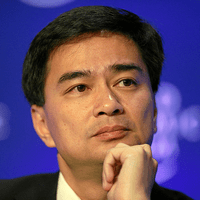
This is the third of a three-part series on Thailand’s slide toward authoritarian rule. The first article discussed the domestic effects of Thailand’s faltering democracy. The second article discussed the regional effects. This final article discusses the broader implications for the U.S.-China rivalry in Southeast Asia. Thailand’s democratic crisis has complicated its relationship with the U.S., pushing Bangkok closer to Beijing. Prime Minister Abhisit Vejjajiva’s dubious legitimacy and Thailand’s progressive slide toward a military regime have left the U.S. undecided on how to proceed. Washington has not openly condemned Bangkok, but neither has it offered the political support that the […]
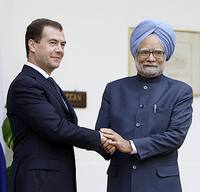
India has recently seen a succession of visits by the top leaders of the permanent Security Council members. The British prime minister was in India in late July, and the American president came calling in early November. Visits by the French president and the Chinese premier followed earlier this month. In contrast to the high-profile U.S. visit, Russian President Dmitry Medvedev flew into India almost unnoticed on Dec. 21. Although the Soviet Union was India’s staunchest ally during the Cold War, India has drifted away from post-Cold War Russia. This stands in stark contrast to India’s ties with the U.S., […]
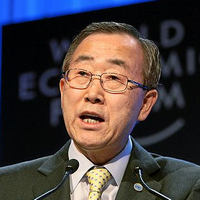
For Ban Ki-moon, the past few weeks have arguably been the most dramatic he has encountered since becoming United Nations secretary-general nearly four years ago. In Côte d’Ivoire, U.N. peacekeepers are guarding the internationally recognized winner of this month’s presidential election while the country slides toward chaos. Meanwhile, in New York, the Security Council spent Sunday locked in fruitless debates on the simmering Korean crisis. Ban, as South Korea’s former foreign minister, can do little to shape the council’s discussions of his home country’s security. He has based his tenure on maintaining good relations with both Washington and Beijing, and […]
After nine years of war in Afghanistan and seven more in Iraq, Americans are understandably weary of military interventions designed to remake or rebuild failed or fragile states. Nevertheless, many countries are still falling apart, or worse, falling into the hands of fundamentalists, terrorists, and other militants who disregard popular will and care little for human suffering. As a result, such nation-building interventions will remain necessary for the foreseeable future, as the U.S. involvement in Yemen, Somalia and Pakistan demonstrates. So instead of renouncing these missions, the U.S. must better define why and how it will carry them out, to […]
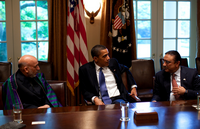
The publicly released overview document summarizing President Barack Obama’s review of U.S. strategy toward Afghanistan and Pakistan touts a number of successes over the last year but concludes that “the challenge remains to make our gains durable and sustainable.” In language very similar to the assessments made for Iraq after the “surge” had begun there in 2007, the report points to positive trends but warns that “these gains remain fragile and reversible.” Over the last few weeks, administration officials had already signaled that there will be no change to U.S. strategy in the immediate future. And while Obama remains committed […]
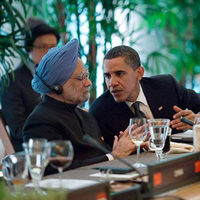
Concern about China’s emerging economic and military capabilities now drives the U.S. strategic debate. The development of anti-ship ballistic missiles (ASBMs) by the PRC has even led some to argue that the balance of power in the Western Pacific has now shifted in China’s direction. At the very least, ASBMs give China another tool with which to threaten U.S. naval predominance in Asia. In response to the perceived growth of Chinese military power, analysts at the Center for New American Security and elsewhere have suggested (.pdf) closer alignment with Japan and India, two of China’s regional rivals. On the surface, […]

While much has been said about the overall merits of the New START agreement, comparatively little attention has focused on the treaty’s Article 10. This relatively short but telling passage borrows decades-old language reinforcing both the United States’ and Russia’s mutual obligations regarding “national technical means” (NTM) of treaty monitoring and verification — diplomatic speak for spy satellites. Article 10 obligates both parties to use NTM in accordance with the principles of international law, to refrain from concealment measures intended to impede NTM verification of compliance, and, most importantly, not to interfere with each other’s NTM. The nod to NTM […]
U.S. Secretary of State Hillary Rodham Clinton speaks at the Brookings Institution’s Saban Center for Middle East Policy Seventh Annual Forum in Washington, D.C., on December 10, 2010.

XI’AN, China — While often portrayed as a major international cyber-security villain, the Chinese state is also facing its own grave online security problems. Despite having one of the most restricted internets in the world, it has generally struggled to develop coherent or effective policy responses to these threats. Recent developments suggest China may be attempting to modernize and legitimize its cyber-security apparatus. This represents a significant opportunity for foreign governments to revisit their perceptions of the country’s cyber intentions and engage with Beijing on a major transnational security and intelligence issue. To do so, it is first necessary to […]

The recent revelation that a computer worm called Stuxnet had caused disruption to the Iranian nuclear program has raised concerns about the unintended consequences of so-called cyber war. It has also caught the attention of nation states and others as Stuxnet has proven to be a truly disruptive cyber weapon. We have witnessed the true dawn of cyber war. Noted cyber security specialist Bruce Schneier recently wrote that cyber arms “agreements are badly needed” and that it is “not too late to reverse the cyber arms race currently under way.” Schneier is not alone in this call. For several years […]
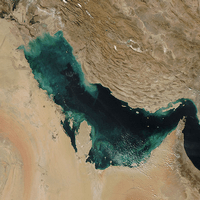
This weekend, Saudi Arabia will gather Gulf Cooperation Council (GCC) countries and other Middle Eastern states to collaborate on fighting the spread of weapons of mass destruction to terrorist organizations. The Saudi initiative reaffirms that regional cooperation is an emerging and powerful facet of international politics, and that regional organizations are a proven force against international security threats. This is not just hyperbole; there is ample evidence worldwide to back it up. Regional teamwork is best illustrated by the progress made in Europe, where the European Union synchronizes policies and resources to combat security threats worldwide. The regional approach to […]

With U.S. defense spending cuts potentially on the agenda, U.S. policymakers would do well to use the United Kingdom’s experience as a cautionary example. The buildup to the recent defense cuts in the United Kingdom served as a call to battle for the U.K.’s military services. Anticipating steep reductions in funding, each of the three branches opened fire on their sister-organizations in the hope of redirecting budgetary knives. This development was neither surprising nor unintended. Civilian policymakers have long understood that they can benefit from inter-service conflict. When services attack one another, it provides fodder for cost-conscious budget-cutters to kill […]

Two developments this week illustrated the “one step forward, one step back” nature of global nuclear nonproliferation efforts. On the one hand, Iran announced further progress in its domestic nuclear program, increasing Tehran’s potential ability to make nuclear weapons should it ultimately decide to do so. On the other, the International Atomic Energy Agency (IAEA) took an important step toward discouraging the further spread of uranium-enrichment technologies, which could be used to pursue nuclear weapons capabilities, by voting to establish the first completely multinational nuclear fuel bank. Although the IAEA move will not solve the immediate problem presented by Iran, […]
